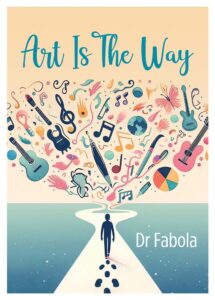
Here’s a question for you: How would you like to be more productive?
This is a rhetorical question, but I feel like I can hear your answer through my screen, and it goes something like “Duh, who wouldn’t want to be more productive?”
The thing about the productivity though, is that it’s an endless pursuit, one which might as well be a poisoned chalice. By all indications and metrics, we’re more productive than we’ve ever been as a society, and yet, we’re more burned out than ever. We have a plethora of tools that streamline our day-to-day tasks thus enabling us to accomplish them in a fraction of the time they would otherwise take without these tools, and yet, it seems we’re more starved for time now than we were before these tools permeated our everyday lives.
We don’t have to look far for a common example. Think about email. On the surface, it’s nothing short of a miracle. Email provides us the ability to send both official and informal communication worldwide in a matter of seconds. We may take it for granted now because it’s been around for decades, but there was a time when the quickest medium for sending electronic, written communication was a fax machine, and there was a time before that, when electronic written communication wasn’t even an option, and the best thing available was the postal service. But now we have email, which we can use for one-to-one communication, for instance, to send your mate a link to a work-in-progress essay, or one-to-many communication, for instance, to send a finished essay to an entire community of subscribers. As I said, nothing short of a miracle. One would imagine that this revolutionary medium would have enabled us to save on the time and effort we put into communicating with the rest of the world. On the contrary, it’s had the opposite effect. We’ve never spent as much time as we do now on emails. And this is true not just for email. The same can be said for Instant Messaging and other electronic and digital inventions that were meant to improve other aspects of our lives but have instead come to represent thorns in the flesh of society. Perhaps the most relevant example of this is social media, but that’s a conversation for another time.
I cite the above examples to elucidate what I like to call the paradox of productivity. A quick search on the Internet suggests that I’m not the first to have this idea. Back in the 19th Century, William Stanley Jevons described this idea concerning the consumption of resources, and it has since come to be known as the Jevons paradox. Jevons stated that an increase in the efficiency of a process or resource results in an increase in demand and usage for that resource. Herein lies the paradox, because intuition suggests that an increase in efficiency would result in a decrease (not an increase) in consumption. The operating assumption here is that consumption is expected to remain constant, therefore an increase in efficiency will result in decreased usage. Of course, this is where the reasoning breaks down and gives way to the paradox because what tends to happen is that our typical response to an increase in efficiency is to increase demand for the resource in question. Once something becomes easier to use, we dream up more ways to use it. Once friction is removed from a process, we come up with more opportunities and avenues to fit that process into our lives. The result is that we end up consuming a lot more resources and devoting a lot more of our time and energy to those processes, thus losing any gains we might have had due to the increase in efficiency. Email, Instant Messaging, and social media all provided efficiency gains at one point, shortly after their respective creation. They improved the efficiency and speed of communication by several orders of magnitude, but after a while, those who were around when the revolution happened seemed to develop a collective amnesia while those who came after – the digital natives – just never knew what things were like before. The result is a society that has acclimatised to the new status quo and has taken it to extremes, so much so that email, IM and social media which were all time-savers at one point, now represent the bane of society’s existence.
And this brings me to the heart of today’s post. it seems we’re on a never-ending quest to improve our productivity. We seek out efficiency gains, strive to optimise processes and make the most effective use of the resources at our disposal. But we only need to look at our recent history to see that these efficiency gains don’t necessarily make us more productive. If our productivity efforts lead us to find ways to reduce the time and effort required for certain tasks, we’ll just end up figuring out ways to get more out of those tasks, and those new ways may just cancel out whatever gains we might have had in the first place. This is the productivity paradox and the bane of every creative person the world over.
How often do we as creatives find ourselves with endless lists of projects, tasks and activities? How often do we wish for more time in the day to do all the things we want to? How often do we try out the latest productivity hacks from self-professed productivity gurus, only to find that they’re not sustainable, promising as they may be, or worse, they’re more trouble than they’re worth? I know I have. But if this quest for productivity is a poisoned chalice, maybe efficiency isn’t the answer, and if efficiency isn't the answer, then what is? That's the big question.

P.S.: My middle-grade novella, A Hollade Christmas, and my debut non-fiction book, Art Is The Way, are out everywhere now. You can get them in all good bookstores and from all major online vendors.